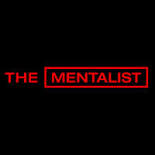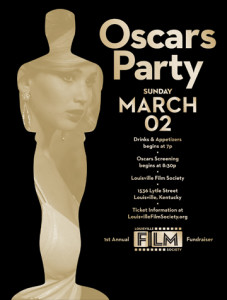Tomorrow night I return to ‘The Mentalist‘ as that bundle of joy and giggles, Richard Haibach.
 It should be a lovely time for all.
It should be a lovely time for all.

Tomorrow night I return to ‘The Mentalist‘ as that bundle of joy and giggles, Richard Haibach.
 It should be a lovely time for all.
It should be a lovely time for all.
As a co-founder of Slated, the film finance marketplace, I feel both fortunate and proud to have the team that we do.![]() And today both those feelings were boosted a good bit, because Slated just debuted a new, industry-wide scoring system. The two types of scores, Packaging and Credits, are intended to generate better practices when projects are packaged, or assembled for financing and production. The system is a great example of Slated’s goal since its beginning: Increase clarity, efficiency, and quanitification throughout the film industry. And it’s both overdue and badly needed.
And today both those feelings were boosted a good bit, because Slated just debuted a new, industry-wide scoring system. The two types of scores, Packaging and Credits, are intended to generate better practices when projects are packaged, or assembled for financing and production. The system is a great example of Slated’s goal since its beginning: Increase clarity, efficiency, and quanitification throughout the film industry. And it’s both overdue and badly needed.
The industry tolerates and even cultivates subjectivity and black-box secrecy in many of its business decisions. In addition to preventing standardization (and with it, a better ability to analyze results), this approach also discourages the participation of potential outside investors—something the film industry can no longer afford.
Our scoring system is far from perfect (yet!), and it’s sure to generate some indignation and debate, but it’s a big step in the right direction.
Finally, we didn’t publish our algorithm, but we did offer an explanation and some tips on how to boost your score. Keep an eye out for more features coming soon..
Just when you thought Lost had been dissected every possible way… 
Everyone on Lost, ranked by annoyingness(?). Thank you, Jezebel. If I/Ethan only do as well on my NCAA march madness pool…
On March 2, Louisville Film Society is throwing their 1st annual Oscar Party, and it’s in our awesome new home in the  Portand neighborhood. Local food and drinks, an auction, and a chance to see the new building, which includes a four-screen movie theatre. Definitely the place to be for the Oscar Party. Come cheer on our fellow Kentuckians at the show.
Portand neighborhood. Local food and drinks, an auction, and a chance to see the new building, which includes a four-screen movie theatre. Definitely the place to be for the Oscar Party. Come cheer on our fellow Kentuckians at the show.
Louisville Magazine, a monthly in my hometown, recently asked several Louisvillian filmheads for their opinion of the best film adapted from a book. Questions with “best” and “favorite” tend to give me hives, but I took one for the hometown and ventured an opinion. (Because I’m usually so, you know, unopinionated…)
My answer is below, and all our answers are online.
Okay, let’s have it. What would you nominate for Best Adaptation from a Book?
“For William Mapother, actor and co-founder of the online film-investment marketplace Slated, form drives function, though sometimes an adaptation hits a home run. “Every narrative form has its own inherent advantage — for example, the internal for novels, dialogue for plays and the external (movement) for movies,” says Mapother, who most recendy starred in the Sundance Award-winning Another Earth… “This has produced the general rule for adaptations: The better the book, the worse the movie, and vice versa. (Stanley Kubrick explained: ‘Great writers are embarrassed by plot.’) So, let’s set aside the debate about which criteria to use (most difficult book to adapt, best book, degree of faithfulness to the source, etc.). Across all reasonable criteria for best adaptation, The Godfather receives the highest average score. It’s a great film, period. And it’s recogoizable as both an adaptation and a work of its own. And it so improves upon the source material that the book seems almost a novelization of the movie. (Author Mario Puzo also co-wrote the screenplay.) And it became a touchstone for adaptations. And, yes, it has Brando.”